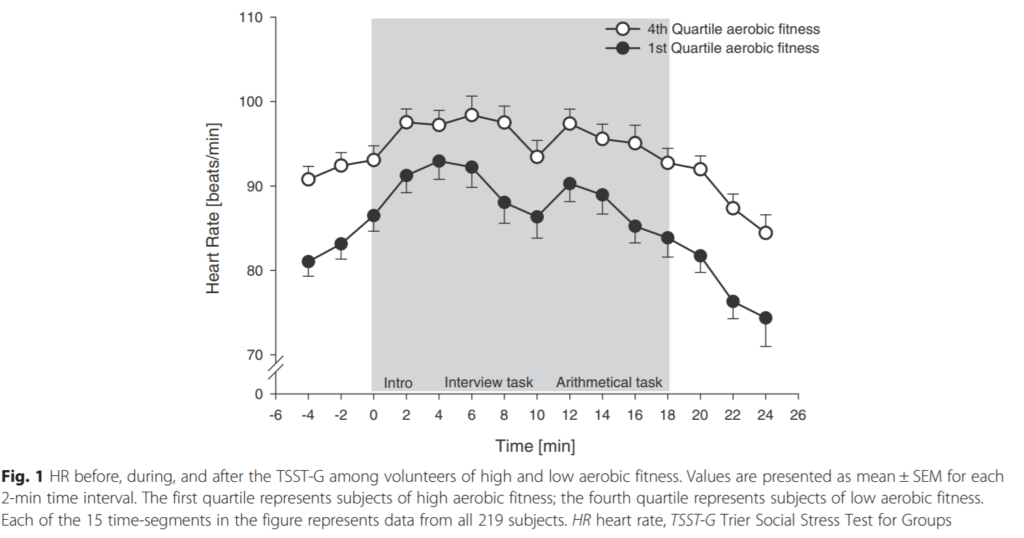Researchers at the Swiss Federal Institute of Sport Magglingen used VivoSense® Software to study the link between physical activity and resistance to psychosocial stress.
Physical activity and stress create similar bodily reactions. Because of this, physical exercise is believed to help adapt to psychological stress. Therefore, regular exercisers will have a reduced Automatic Nervous System reaction to psychosocial stress. To test this hypothesis, researchers at the Swiss Federal Institute studied the role of physical fitness level on ANS responses. They measured heart rate and salivary alpha amylase responses to acute psychosocial stress.
Researchers screened participants and divided them into quartiles based on their physical fitness level. They found that heart rate and salivary alpha amylase, which are physical reactions to stress, depended on the participant’s fitness level. The authors stated that “Cardiovascular fitness remains a significant predictor variable, even when controlled for the most important influencing factors to individual stress reactions.” Based on these findings, researchers suggest that employers support physical endurance training for staff with mentally and physically demanding jobs.
Aerobic Fitness Level Affects Cardiovascular and Salivary Alpha Amylase Responses to Acute Psychosocial Stress
Wyss, Thomas et al. 2016, Sports Medicine
Dudley Tabakin
Dudley Tabakin, MSc. is Chief Product Officer and co-founder of VivoSense and a fervent believer in “good data” over “big data” in the development of digital endpoints from wearable sensor technology.


